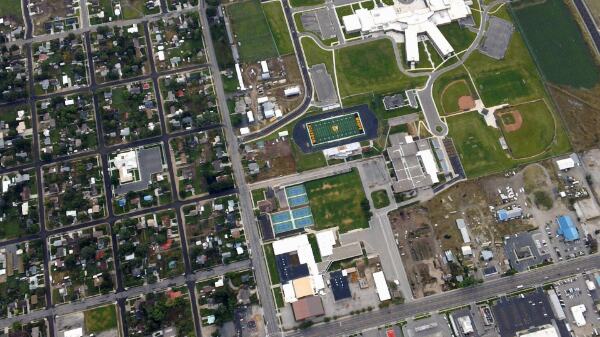Lasting solutions
A hygienic and nature-oriented plan, equipped with social infrastructure and upskilling goals, could add durability to the development process of cities

This is indeed one of the toughest challenges facing all governing models. There is no one answer for all cities nor can there be one answer for all times. Going forward, the mantra has to be: simplify, digitize and localize.
Let us take a few givens. Cities will be populated and, as economic opportunities expand, populations will continue to be added. Cities will harbour the dreams of various segments and will thus have to have fertility in their ambience that will inspire and nourish these dreams. In this singular strength of the city will lie its own prosperity.
Cities in India are no different in their potential and offerings. Economic and job opportunities, education, healthcare and a chance for a better life, at least for the gen-next, are some of the factors that attract youth from the countryside. The poor undergo a million hardships to do something better for their families. Last year, the COVID-19 pandemic destroyed many lives. Lakhs of people fell victim to Coronavirus, thousands could not get healthcare facilities. Lakhs abandoned the cities of their work, left with no money, no food, no shelter and no one to turn to. Lakhs of them went home facing extreme hardships, some on foot, some on cycles, trudging thousands of miles to be amidst their near and dear ones. The world as they knew it, of hope and a better future in some distant time, had closed out on them in one sudden strike. Nobody knew the answers as all those in governance struggled with finding an adequate response. No mitigation, no rehab and a bleak future. This is a tragedy of our times and will always be a historic black spot, despite so much of the famed march of modern medicine.
Be that as it may, do we have better answers now? Can we build on some answers that we can turn to in times of distress of the magnitude of this pandemic?
• Our urbanization story has to stop playing with the logic of nature, as a first start. We have built cities in disregard of the water tables, topography and green spaces.
• We have to make hygiene the matter of utmost priority. Waste, of all kinds, is adding to the toxicity of the environment on a daily basis. It is impacting lives and reducing life spans. We need to pay heed to the fact that a clean environment is a non-negotiable basis for going forward.
• People cannot get jobs unless they have skills. They cannot acquire skills if there is no capacity building. So, we need skill givers. A massive effort is needed in locating skill-building capacities in the proximity of the poor neighbourhoods, both in urban and rural settings. To build this, we need to tap into the ability of the voluntary sector to organize and deliver. They need a core driving nucleus to maintain focus, to keep building content, testing and certifying those. Formal schools have to be multiplied at a colossal speed and there has to be an authority to ensure standards.
• Simplify, digitize and deliver has to be the motto. Our energies are being sapped by onerous processes. To access civic needs, these have to be made easy.
• Communities will improve through better and faster connectivity. Transportation and telecom — two important drivers — will build these relationships.
• We need social infrastructure in every city so that culture, cohesion and co-existence can thrive. Peace is a vital ingredient of a thriving economy.
• Countryside and open spaces need improvement. The distinctions will have to go. City limits have lost their relevance. We need to find new demarcations.
• The real challenge is sustainability. How to make reforms durable and lasting? There is one fundamental fact: Nothing is permanent. Any beautiful garden needs to be tended well. In the same way, cities have to be nursed and nourished. We have to keep ahead of volumes in step with technologies and evolve a policy of compatibility as we go ahead. Politics of incompatibility in so far as building a city is concerned, has no place in our campaign for sustainable living.
The economy will flourish only if we have a framework of facilitation, including an attitude and inclination for assistance. To reiterate and emphasize: simplify, digitize and universalize the governance system otherwise, we can muddle along as we are wont to do.
The writer is the now retired-Director of the India Habitat Centre. Views expressed are personal



